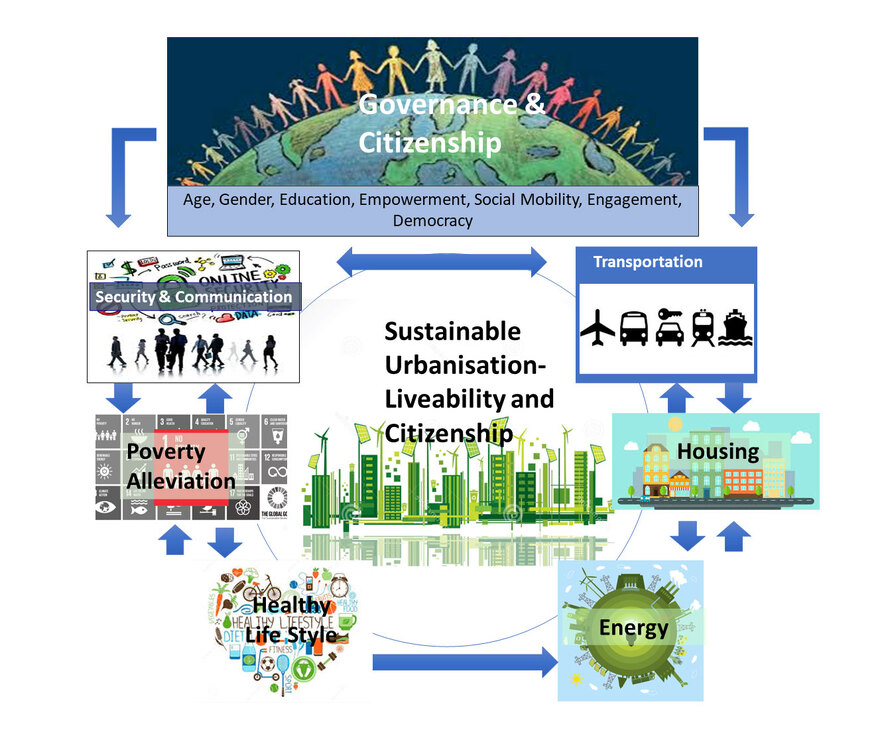Project
Cities face growing environmental, social, and economic challenges that threaten the resilience of urban areas and impact residents who live and work there. Integrated nature-based infrastructure solutions have emerged as a concept that promote biodiversity of cities and address a range environmental, economic, and societal challenges that in turn improve citizen health and wellbeing. Lessons can be learnt from the COVID-19 pandemic where social, economic, and territorial segmentations of cities and their vulnerabilities were exposed revealing accumulation of risks related to housing, employment, health, access to care, services, and facilities. The ineffectiveness of the ‘top-down, one size fits all’ strategies and policies in local contexts were also illustrated. New governance models including participatory community approaches and place-based strategies are needed to adopt city solutions that enable, mobilise, and sustain local initiatives. These participatory approaches can contribute positively to determine the way forward for adopting nature-based solutions at an individual level as well as at a community level to improve resilience of cities. This research focused on how nature-based solutions and urban green spaces can be incorporated into city infrastructure by participatory approaches and community engagement that will provide locations for recreation, social interaction, that in turn build community cohesion that contribute to physical and mental health and wellbeing. The research adopted a mixed methodology and offered the opportunity to draw synergies and share best practices from different cities across the world. It examined city planning frameworks and governance systems in relation to future cities where the local community can be part of the decision making using innovative engagement platforms. There is a momentum for place-based action and the research examined decision-making frameworks to enable stakeholders to adopt nature-based solutions to improve urban resilience of cities.
Conference
Urban Transitions 2022 - Integrating urban and transport planning, environment and health for healthier urban living, 8-10 November 2022, Sitges, Barcelona, Spain.



